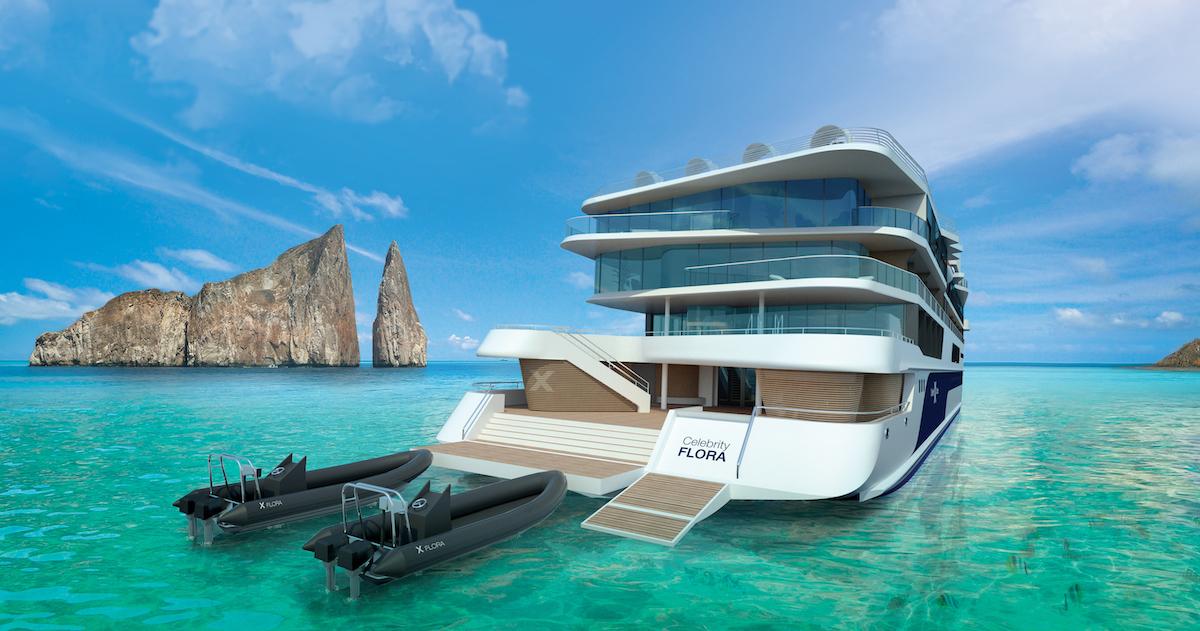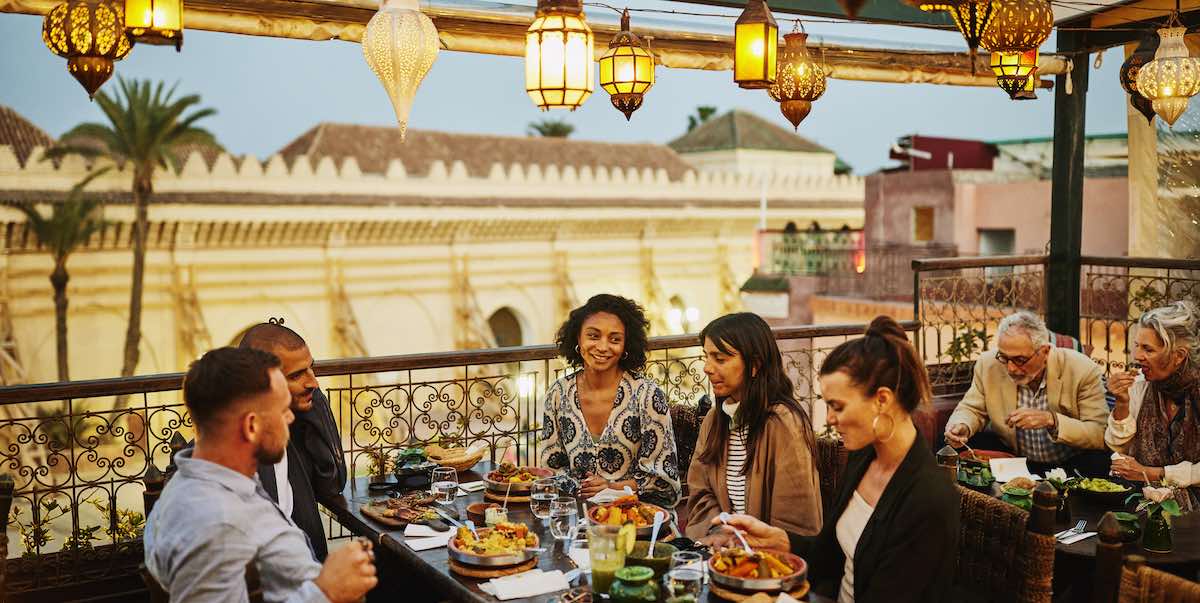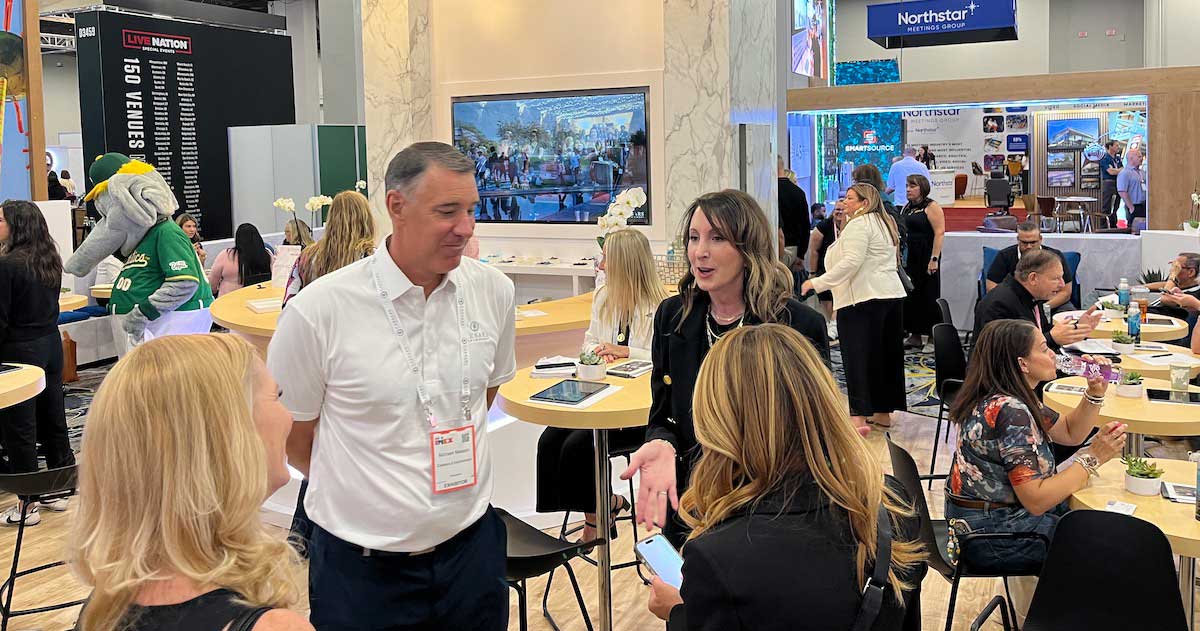If ever there were a segment of the travel industry in which meeting and incentive groups get benefits far beyond their overall numbers it is the cruise line sector, where almost 95 percent of the passengers are leisure travelers, yet the cruise ships these days seem like they were designed specifically for groups.
Leysi Sabates, global business development manager, corporate incentives, meetings and charters for Celebrity Cruise Lines, explains that is in part because sea-based meeting and incentive attendees have a lot in common with individual cruise passengers now.
“They are seeking a personalized, experiential approach, and that’s what cruise lines are very good at delivering these days,” she says.
The cruise ship industry offers an extremely diverse product for groups, with everything from 50-cabin vessels that give passengers an intimate experience in destinations such as the Galapagos Islands—where Celebrity was scheduled to debut a new vessel at the end of June—to 5,400-passenger, oceangoing cities that are so large they are divided into “neighborhoods.”
“The cruise ship industry as a whole is on fire right now in terms of demand and a lot of new product is being launched,” says Lori Cassidy (MPI South Florida Chapter), associate vice president, global corporate, incentive and charter sales for Royal Caribbean Cruise Lines (RCCL).
“Royal Caribbean’s fleet of 26 innovative vessels are purposely built with business in mind,” says Cassidy, who heads a team of 60 sales and service professionals who deal exclusively with meeting and incentive groups.
Just as it is with hotels, cruise ships covet meeting and incentive groups because of the large numbers they can bring for each event. Groups sometimes buy out entire ocean liners and may bring several thousand passengers for one event.
Meeting planners have been attracted to cruise ships for years because they essentially create a captive audience that keeps attendees from being distracted—it’s impossible to walk out the door and stroll down the street to some other venue.
While that age-old asset still exists, those who work in the cruise industry now say the attraction to groups has shifted to the appeal of the ships themselves.
And there is another reason that someone not experienced with group events at sea might not think of—affordability.
“Cruises and all-inclusive resorts are being used more now than ever by corporations looking for the greatest value for their incentive budget,” says Lisa Wallack, president of Buy the Sea, a Plantation, Fla., brokerage company she founded about 20 years ago. “Everything is included in one price and there are no unpleasant surprises at the end.”
She says fundamental group event components that might cost extra at land-based resorts are part of the package for events at sea.
“With cruises in particular, there are items included that would cost thousands of dollars at a European Plan (EP) hotel: function space, lighting, décor, staging, audiovisual, entertainment, production staff, group activities, gratuities, unlimited food and, in many cases, premium liquor. They are all part of the cruise fare,” Wallack says. “There is no guesswork. Evening events happen on the ship. There is no bussing to offsite venues or a high additional cost for those events.”
Cassidy says that with the multibillion-dollar upgrades that cruise ship fleets have undergone in recent years, the ships themselves offer a wow factor for groups that can match what any land-based resort has to offer.
“Our ships are truly the destination, and our offering of global itineraries and ports of call are the icing on the cake,” she says. “We offer such a wide variety of culinary, entertainment, team-building activities and shore excursion experiences that we truly have something for everyone. Only on Royal Caribbean can guests experience open-air neighborhoods for private events that can accommodate up to 1,200 guests—guests can choose from the Boardwalk, Central Park or Solarium, all available on our Oasis Class vessels that sail in both the Caribbean and Europe.”
All 26 of RCCL’s ships offer group meeting and event spaces ranging from small board rooms to large spaces that can handle up to 1,000 or more attendees, Cassidy says.
What cruise passengers find nowadays is a variety of experience options that have been carefully planned out to appeal to a broad cross-section of age groups and interests. RCCL, for instance, offers everything from skydiving simulators to ice skating to zip lining to bumper cars to roller skating and more. And, of course, there’s plenty on RCCL and other cruise lines for those who have something more sedentary in mind—everything from Broadway shows to cooking classes.
Another innovation in the cruise line industry is the advent of private islands, owned by the lines for the exclusive use of their guests.
RCCL recently began offering its own private island experience called “Perfect Day at CoCo Cay” that not only includes private beaches but activities including a water park, hot-air ballooning and zip lining, and also what is called “Chill Day at the CoCo Beach Club” with an infinity pool and private cabanas—a US$200 million investment. The line is also planning more private islands in the Caribbean, Europe, Asia and the South Pacific over the next few years, Cassidy says.
A destination that Celebrity Cruise Lines has been offering for more than 15 years is focused on an intimate passenger experience that also offers a robust CSR opportunity—the Galapagos Islands off the coast of mainland Ecuador.
“Groups these days are looking for a meaningful experience that goes beyond photos to share with their friends on social media, or souvenirs to buy and take back home,” Sabates says.
They are often seeking CSR experiences that will be memorable for years, she adds.
Celebrity has been taking ships with 50 luxury cabins to the Galapagos, where the 100 passengers are accompanied by naturist guides who can not only explain the unique flora and fauna of the islands but facilitate a key CSR activity for groups—planting trees.
“So far passengers on our Galapagos excursions have planted more than 38,000 trees,” Sabates says.
In May, Celebrity took delivery of what it calls a “mega yacht,” the 100-passenger Celebrity Flora, an amenity-laden vessel that will offer seven-night cruises alternating with packages ranging up to 16 nights. The ship carries a staff of certified naturists who will be present in a 1:9 ratio with the passengers—there is even an environment lab on board, Sabates says. The crew, many of which are native Ecuadorians, will include an attendant for each of the 50 guest rooms. The Celebrity Flora was scheduled to set sail at the end of June.
Celebrity is also in the midst of a $500 million upgrade for its fleet. The new concept being rolled out is the Edge design, in which the focus on the guest cabins is open verandas that are incorporated into the cabin design, opening up spectacular views that are offered through floor-to-ceiling glass walls in the cabins. Also part of concept are the outdoor verandas themselves, which start at about 80 square feet each and go upward from there, giving passengers the ability to enjoy their own private outdoor experience overlooking the ocean. The upgrade involves two classes of existing ships. Celebrity’s upgrade, which it calls its “Revolution,” involves its Millennium (four ships) and Solstice (five ships) classes, which are being totally re-imagined from stem to stern.
Also undergoing a half-billion-dollar upgrade is RCCL’s fleet, which is redesigned into its new Oasis Class vessels.
“The new standard for the wow factor is our Oasis Class ships,” Cassidy says. “The RCCL fleet includes four of them now, with four more on order. The first four are the Oasis of the Seas and Allure of the Seas, the Harmony of the Seas and the Symphony of the Seas, with capacity for 5,400 passengers (double occupancy) on 16 decks. “They are just jaw-dropping when you go on board.”
RCCL has numerous cruises from ports all over the world that offer three- and four-night journeys, a cruise length convenient for ocean-going meeting and incentive groups. Also important to groups is connectivity: RCCL has a Wi-Fi system in which satellites “follow” the ships around the world, providing fast (and free) phone and internet connectivity to the working world the passengers temporarily leave behind.







